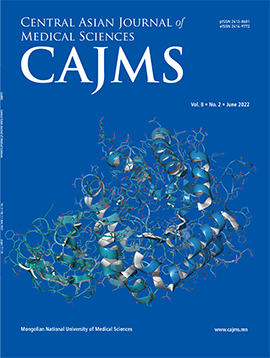The Regulation of Energy Metabolism: An Important Facet of P53 Function
DOI:
https://doi.org/10.24079/cajms.2017.06.002Keywords:
P53, Tumor Suppressor, Metabolism, Cell Growth, Mutant P53Abstract
Objectives: p53 is a key tumor suppressor protein that has a diverse range of functions which help to prevent cancer development. Given that metabolic alterations are common features of cancer cells it has been recently suggested that p53 has an important role in controlling metabolic pathways. The aim of this review is to provide an update of our current understanding of the role and mechanisms of p53 in maintaining the homeostasis of cellular energy metabolism. Methods: the studies which are reported, focus on the regulation of p53-targeted genes which are mainly involved in the glycolytic pathway, oxidative phosphorylation and the signaling pathway regulating cell proliferation. Results: To meet the high demand of energy and precursors for macromolecule biosynthesis, cancer cells markedly increase their glucose uptake to fuel:1) the glycolytic pathway in order to rapidly generate energy (ATP) and 2) the metabolic pathways which give rise to macromolecules to support uncontrolled cell growth. The net effect of p53 is to repress the glycolytic flux at different steps through multiple mechanisms, to maintain the oxidative phosphorylation, to decrease the fatty acid synthesis and to partly inhibit the growth signaling pathway of IGF1. Taken together these effects are detrimental for the cell survival and participate to the tumor suppressive effect of p53. Conclusion: This review clearly indicates that p53 has the capacity to control, in physiological conditions and in cancer cells, the expression of metabolism-related genes that are important regulators of metabolic pathways, including glycolysis, oxidative phosphorylation, fatty acid metabolism and mTOR signaling. Consequently, a better understanding of the complex network connecting p53 and the metabolic pathways may allow the discovery of novel anticancer tools.
Downloads
221
Downloads
Published
How to Cite
Issue
Section
License
Copyright (c) 2017 Mongolian National University of Medical Sciences

This work is licensed under a Creative Commons Attribution-NonCommercial 4.0 International License.




